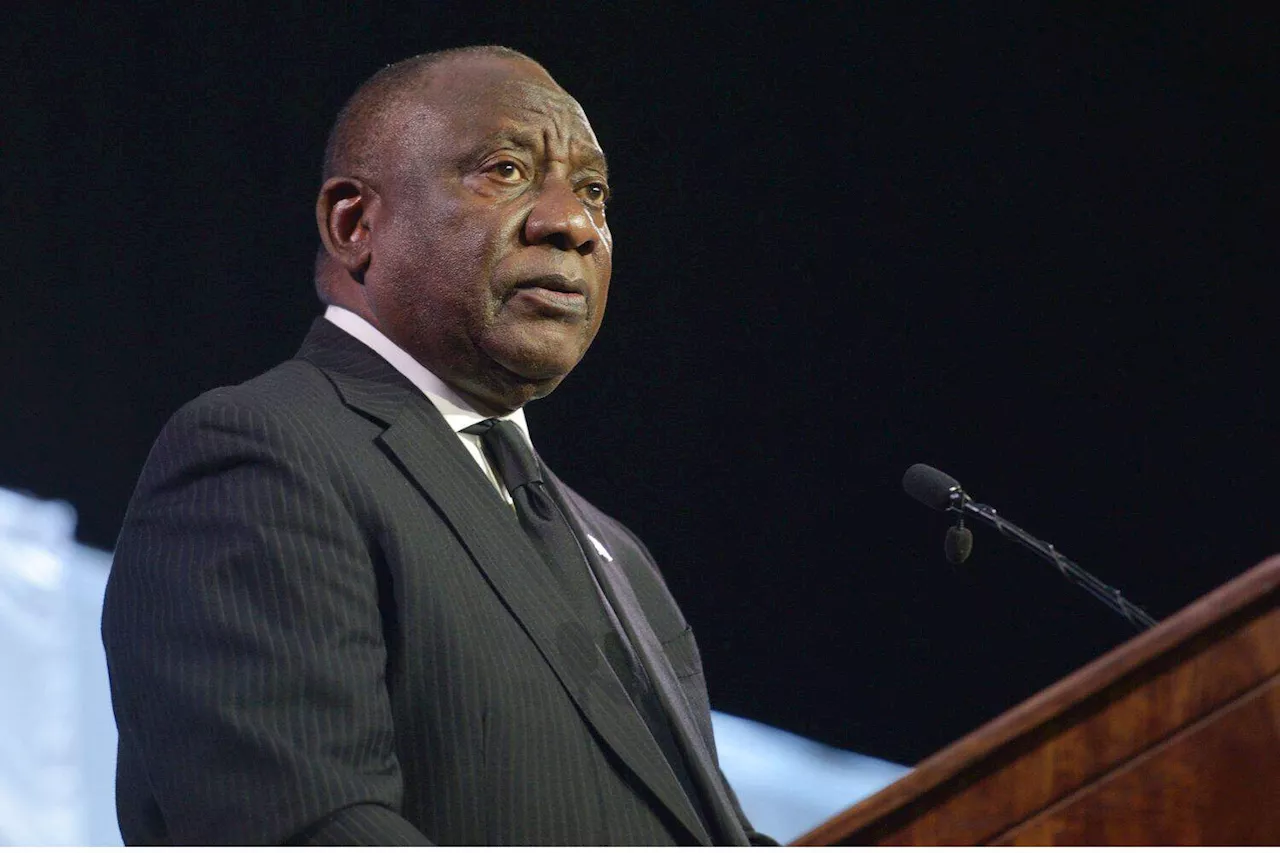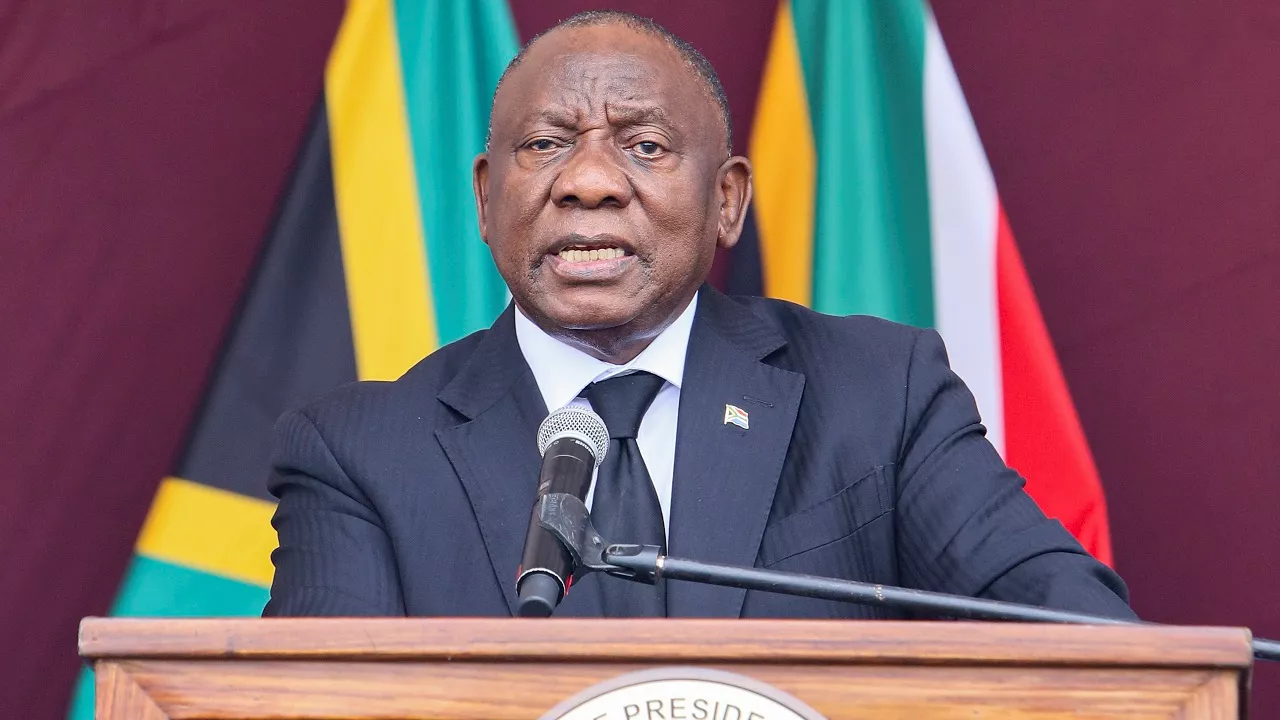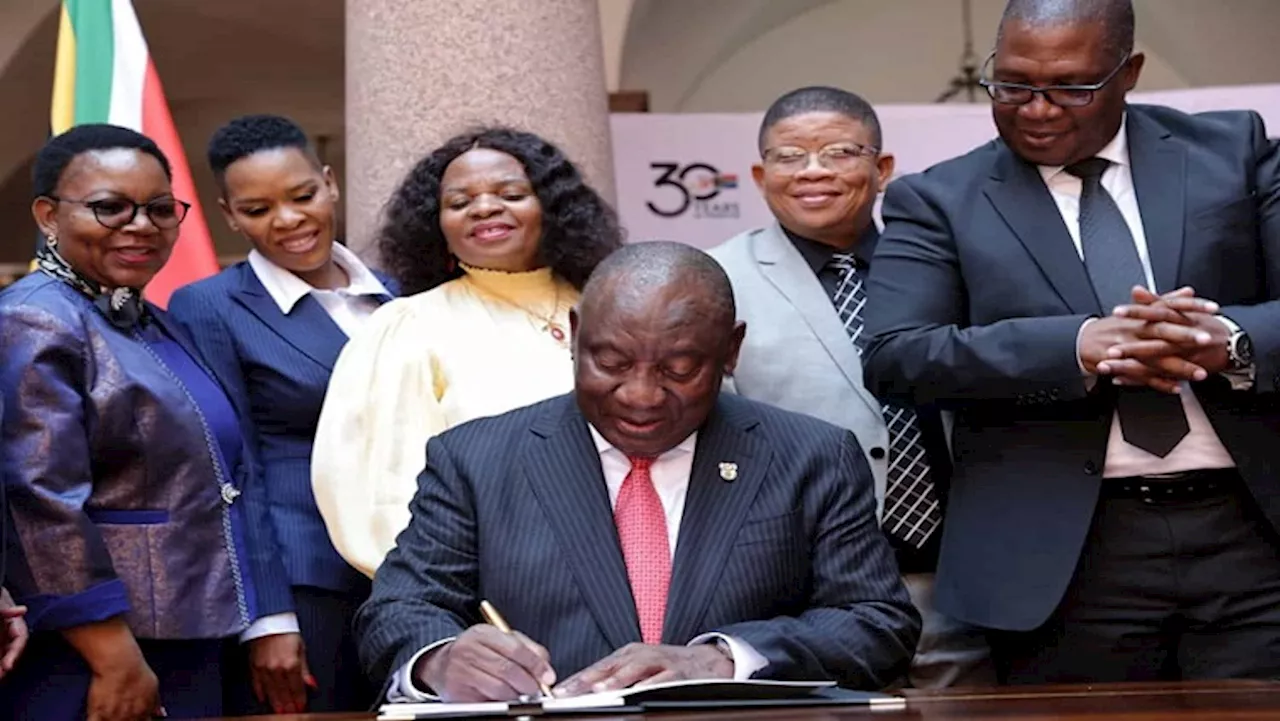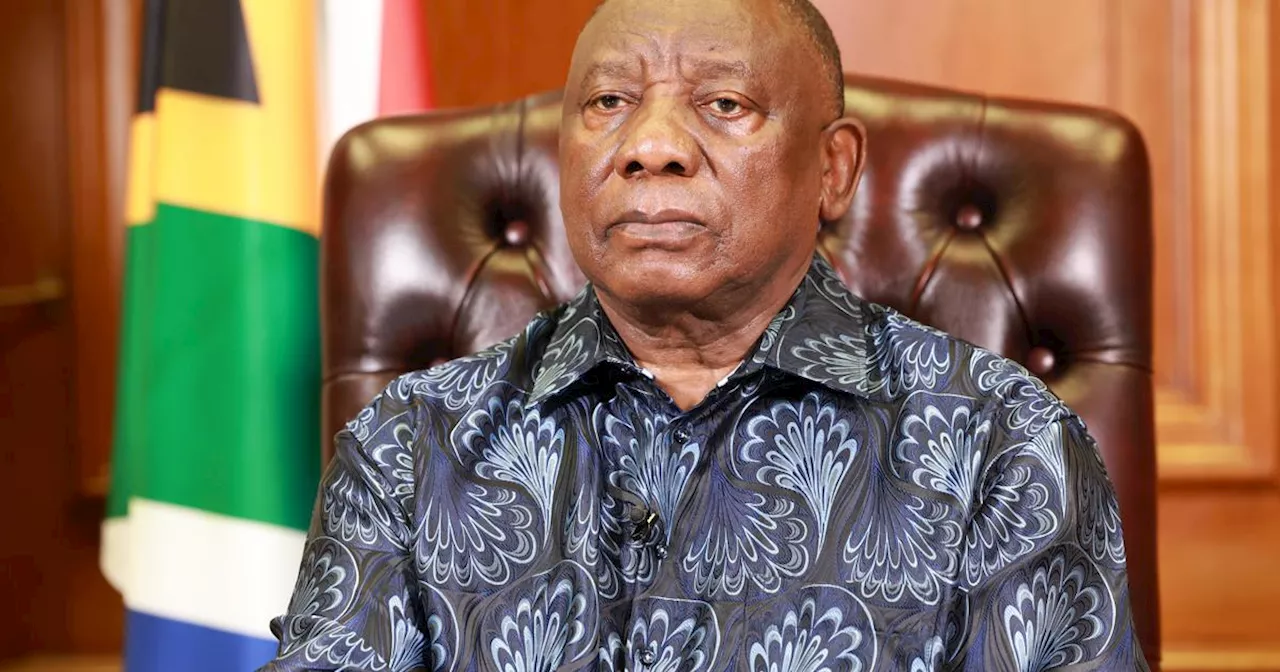The signing of South Africa's Expropriation Bill into law has ignited a debate over land ownership and redistribution. While President Cyril Ramaphosa sees it as a crucial step towards addressing historical injustices, critics, including US President Donald Trump, warn of potential abuse and economic instability. This article explores the key arguments surrounding the bill, its potential implications, and the challenges facing South Africa in its pursuit of equitable land ownership.
US President Donald Trump has criticized South Africa's new expropriation law, claiming it is aimed at seizing the agricultural property of ethnic minority Afrikaners without compensation. This criticism comes after President Cyril Ramaphosa signed the Expropriation Bill into law, which sets new guidelines for land expropriation without compensation.
Advocate Tembeka Ngcukaitobi, a prominent legal scholar, argues that South Africa should have passed a law enabling equitable land redistribution when its final constitution was adopted in 1996. He believes the state should have the power to redistribute land in its own hands, generate income for communities, and undertake large-scale agricultural projects.Ngcukaitobi highlights the failures of previous land reform processes, citing the unresolved land claims from 1998 and the pervasive corruption within the system. He points to a report by the Special Investigating Unit (SIU) which indicated that at least one in every four land claims had a corrupt element, involving dubious claims, inflated demands, and involvement of state officials. Ngcukaitobi argues that the combination of delayed legislation, inefficiency, and corruption has created a toxic situation, leading to the current land ownership disparities. He acknowledges that the new Expropriation Bill is a step in the right direction, but emphasizes that it is primarily focused on expropriation for state ownership rather than comprehensive land reform. Ngcukaitobi stresses the importance of avoiding arbitrary actions and emphasizes the need for clear conditions under which expropriation without compensation is justified. He warns against repeating the mistakes of the apartheid era, where excessive state power led to widespread suffering and injustice. While acknowledging the uncertainties surrounding the new legislation, Ngcukaitobi encourages a forward-looking approach and urges against romanticizing the past.
LAND REFORM EXPROPRIATION SOUTH AFRICA DONALD TRUMP CYRIL RAMAPHOSA TEMBEKA NGKUKAITOBI APARTHEID
South Africa Latest News, South Africa Headlines
Similar News:You can also read news stories similar to this one that we have collected from other news sources.
 South Africa Passes Controversial Expropriation Bill Allowing Land Seizure Without CompensationPresident Cyril Ramaphosa signs the Expropriation Bill into law, enabling the seizure of land without compensation for public purposes. The bill has sparked debate, with supporters emphasizing its role in addressing historical land inequalities and critics raising concerns about its potential impact on investor confidence and economic stability.
South Africa Passes Controversial Expropriation Bill Allowing Land Seizure Without CompensationPresident Cyril Ramaphosa signs the Expropriation Bill into law, enabling the seizure of land without compensation for public purposes. The bill has sparked debate, with supporters emphasizing its role in addressing historical land inequalities and critics raising concerns about its potential impact on investor confidence and economic stability.
Read more »
 South Africa Signs Expropriation Bill Allowing Land Seizure Without CompensationPresident Cyril Ramaphosa signed the Expropriation Bill into law, enabling the government to seize land without compensation for public purposes. The bill, replacing the 1975 Expropriation Act, has sparked controversy with opposition parties and civil society groups condemning it as potentially unjust and threatening to legal action. While proponents argue it's a step towards addressing historical land dispossession, critics fear it could destabilize the economy and erode property rights.
South Africa Signs Expropriation Bill Allowing Land Seizure Without CompensationPresident Cyril Ramaphosa signed the Expropriation Bill into law, enabling the government to seize land without compensation for public purposes. The bill, replacing the 1975 Expropriation Act, has sparked controversy with opposition parties and civil society groups condemning it as potentially unjust and threatening to legal action. While proponents argue it's a step towards addressing historical land dispossession, critics fear it could destabilize the economy and erode property rights.
Read more »
 South Africa Passes Landmark Expropriation BillPresident Cyril Ramaphosa signs the Expropriation Bill into law, replacing the outdated Expropriation Act of 1975 and ushering in a new era of land reform.
South Africa Passes Landmark Expropriation BillPresident Cyril Ramaphosa signs the Expropriation Bill into law, replacing the outdated Expropriation Act of 1975 and ushering in a new era of land reform.
Read more »
 South Africa Passes Controversial Expropriation BillThe African National Congress (ANC) has secured the passage of the Expropriation Bill, which allows the government to seize land in the public interest. While the ANC argues it addresses land inequality and promotes inclusivity, opposition parties criticize it as unconstitutional and ineffective, pledging to challenge it in court.
South Africa Passes Controversial Expropriation BillThe African National Congress (ANC) has secured the passage of the Expropriation Bill, which allows the government to seize land in the public interest. While the ANC argues it addresses land inequality and promotes inclusivity, opposition parties criticize it as unconstitutional and ineffective, pledging to challenge it in court.
Read more »
 South Africa Signs Expropriation Bill into LawPresident Cyril Ramaphosa signed the Expropriation Bill into law, aligning expropriation legislation with the South African Constitution. The bill outlines how state organs can expropriate land for public interest reasons. The Presidency emphasized that expropriation will proceed constitutionally, ensuring it serves public purposes and interests.
South Africa Signs Expropriation Bill into LawPresident Cyril Ramaphosa signed the Expropriation Bill into law, aligning expropriation legislation with the South African Constitution. The bill outlines how state organs can expropriate land for public interest reasons. The Presidency emphasized that expropriation will proceed constitutionally, ensuring it serves public purposes and interests.
Read more »
AfriForum Faces Backlash for Lobbying Trump on South Africa's Land Expropriation BillA growing number of organizations have condemned AfriForum for lobbying US President Donald Trump over South Africa's land expropriation bill, which led to Trump suspending US aid to South Africa. AfriForum claims the new Expropriation Act seeks to forcibly take land from white owners, sparking criticism from South African organizations like Save South Africa and the ANC.
Read more »
